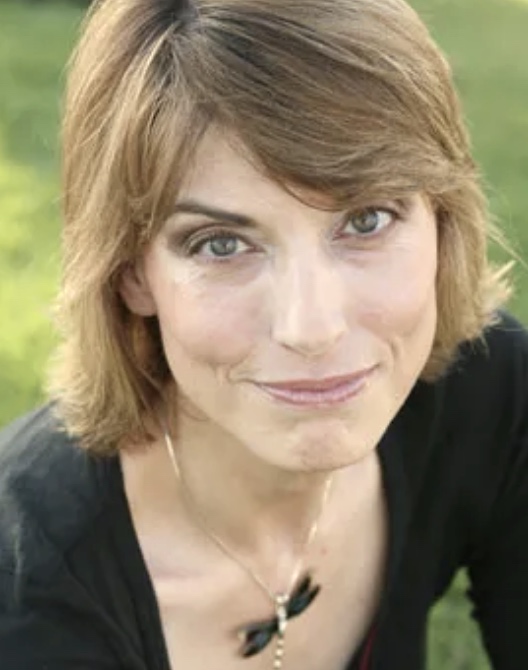On this date in 1964, science writer and editor Jennifer Ouellette was born in Ashland, Wis. “I was raised evangelical, and growing up, ‘secular humanist’ was pretty much synonymous with Satan. No truly good person could possibly be a humanist because all good comes from God. Or so I was taught.” (Speech to American Humanist Association, May 18, 2018)
“I thought everyone was adopted when I was a kid: You just go to the baby store and you get a baby. I didn’t know anything about my biological parents until I was in college. When I looked at the description of my biological mother, I thought: ‘Damn, I’m just like her in so many ways.’ ” (Psychology Today, Jan. 1, 2014)
After high school, she enrolled at Seattle Pacific University, founded by the Free Methodist Church, a conservative denomination, where she earned a B.A. in 1985. “I’m not a scientist by training. I’m a former English major who staunchly avoided taking physics, in any form, all through high school and college, only to run smack into it as a struggling freelance writer in New York City. And I found it wasn’t nearly as scary and inaccessible as I’d expected.” (Interview with science fiction author John Scalzi, June 20, 2007)
For about a decade after graduation, Ouellette was a contributing editor of The Industrial Physicist magazine, published by the American Institute of Physics. As a writer, she found her niche by focusing on how science meets culture, including in movies, TV and books. She directed the National Academy of Sciences’ Science and Entertainment Exchange from 2008-10 and wrote a blog for Scientific American titled “Cocktail Party Physics.”
Her physicist husband Sean M. Carroll (they married in 2007) explained that she was hired by the American Physical Society “after they found out that it was easier to teach physics to people who knew how to write than to teach writing to people who knew physics.” (Meet the Skeptics, Dec. 4, 2012)
Ouellette, who has a black belt in jiu-jitsu, was named senior science editor at Gizmodo in 2015 and joined Ars Technica in 2018 as a contributor and senior editor in 2024. She has published four popular science books: “Black Bodies and Quantum Cats: Tales from the Annals of Physics” (2005), “The Physics of the Buffyverse” (2006), “The Calculus Diaries: How Math Can Help You Lose Weight, Win in Vegas, and Survive a Zombie Apocalypse” (2010) and “Me, Myself And Why: Searching for the Science of Self” (2014).
She is “always looking for innovative ways to communicate the beauty and relevance of science – all science, not just physics – to people like me, for whom the traditional physics curriculum is, frankly, a bit of a turn-off. My brain just doesn’t work that way, but it doesn’t mean that I’m mentally challenged; rather, I just need a different approach to grasp the fundamental concepts of science.” (Ibid., Scalzi)
Long an advocate for death with dignity legislation, she talked about losing her brother when she accepted the Humanist of the Year award in 2018 from the American Humanist Association. He died of metastasized esophageal cancer (which Christopher Hitchens also succumbed to in 2011).
“David was really scared about his impending death — who wouldn’t be? But my evangelical Christian parents refused to admit that he was going to die. They had decided that Jesus was going to miraculously heal him, and any admission of the actual reality was akin to not having faith in their god’s power and greatness. This hurt David very deeply because he couldn’t talk to them about his feelings and what was happening to him.”
She added: “Humanists might appear to have a huge disadvantage when it comes to death and dying. We don’t have a rosy afterlife to point to, a reward in heaven to make up for all the suffering here on earth. Death is so very final. … But there is strength in facing that truth unflinchingly. Ironically, the humanists in the family dealt with David’s death far better than the devoutly religious members, precisely because we were willing to face the facts and grapple openly with a great personal loss.”


